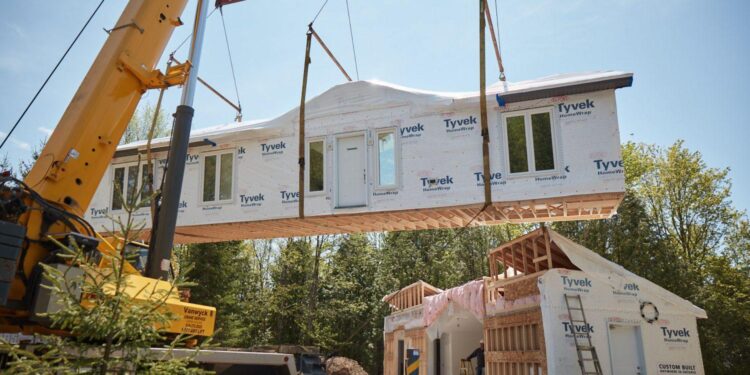Factory-built homes from Latvia are rapidly gaining traction in the Polish real estate market, offering a compelling solution to the country’s growing demand for affordable and quick-to-deploy housing. According to The Baltic Times, Latvian manufacturers are leveraging advanced modular construction techniques to deliver high-quality residential units that combine speed, efficiency, and cost certainty. This development signals a promising shift in Poland’s housing landscape, as developers and buyers seek alternatives to traditional building methods amid persistent market challenges.
Factory-built Homes from Latvia Revolutionize Polish Real Estate Market
Latvia’s innovative approach to factory-built homes has begun disrupting the Polish real estate landscape, offering unmatched efficiency and reliability to a traditionally slow and complex market. These prefabricated houses, manufactured with precision and quality control in state-of-the-art Latvian facilities, dramatically reduce construction times. Polish buyers and developers alike are attracted by the promise of swift project completion without compromising on design or durability. This trend is reshaping expectations, with many clients now demanding transparency and fixed delivery schedules as a new standard.
Key advantages driving the surge in popularity include:
- Consistent build quality due to controlled factory conditions
- Significant cost savings from streamlined production processes
- Reduced environmental impact with minimized material waste
- Less dependency on unpredictable weather and labor shortages
| Feature | Traditional Construction | Latvian Factory-built Homes |
|---|---|---|
| Average Build Time | 6-12 months | 8-12 weeks |
| Cost Variability | High | Low |
| Quality Control | Variable | Strict factory standards |
| Environmental Impact | Moderate to High | Low |
Boosting Construction Speed and Quality Assurance for Homebuyers
Latvian factory-built homes are revolutionizing the Polish real estate market by significantly reducing construction times while maintaining stringent quality standards. At the heart of this transformation is the controlled production environment, where each component is meticulously crafted to exact specifications. This factory setting minimizes the common delays and uncertainties associated with traditional on-site construction, allowing homebuyers to enjoy a faster move-in process without compromising on durability or design.
Beyond speed, the assembly-line approach ensures consistent quality assurance through:
- Standardized materials tested for long-term performance
- Advanced precision techniques reducing human error
- Comprehensive inspections at each stage of production
- Energy-efficient design integration that meets the latest European standards
| Factor | Traditional Build | Factory-built Home |
|---|---|---|
| Construction Time | 6-12 months | 3-4 months |
| Quality Verification | On-site, variable | Factory controlled |
| Weather Impact | High | None |
| Design Flexibility | Moderate | High |
Expert Recommendations for Integrating Modular Housing into Poland’s Urban Development Plans
Urban planners and construction experts emphasize that the integration of modular housing into Poland’s cities can dramatically address both housing shortages and sustainability goals. Leveraging the precision of factory-built homes from Latvia, cities can benefit from faster construction timelines and a reduction in on-site disruptions. Experts advocate for a collaborative framework where local authorities, developers, and manufacturers align on zoning regulations, infrastructure readiness, and quality standards to seamlessly incorporate modular units into existing urban fabrics.
Key strategic actions recommended include:
- Streamlining permitting processes specifically for modular construction projects
- Incentivizing developers through tax breaks or subsidies to adopt innovative building technologies
- Ensuring modular designs prioritize energy efficiency and adaptability to local climatic conditions
- Developing pilot neighborhoods showcasing modular housing benefits to build public trust
| Challenge | Expert Solution | Expected Outcome |
|---|---|---|
| Lengthy approval cycles | Dedicated modular housing permits | Reduced red tape by 40% |
| Local workforce skill gaps | Training partnerships with manufacturers | Faster on-site assembly, quality consistency |
| Community resistance | Public engagement and demonstration projects | Improved acceptance and demand |
Key Takeaways
As demand for efficient and reliable housing solutions continues to rise in Poland, Latvian factory-built homes stand out as a promising answer. Combining speed of construction with quality assurance, these prefabricated houses are reshaping the local real estate landscape. With strong cross-Baltic collaboration, the trend signals not only a boost in housing availability but also a strategic partnership that could redefine residential development in the region. The Baltic Times will continue to monitor this evolving story and its impact on Poland’s property market.













